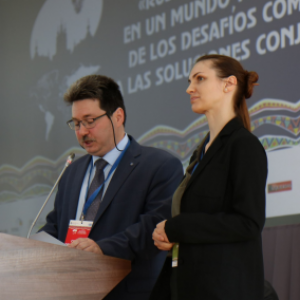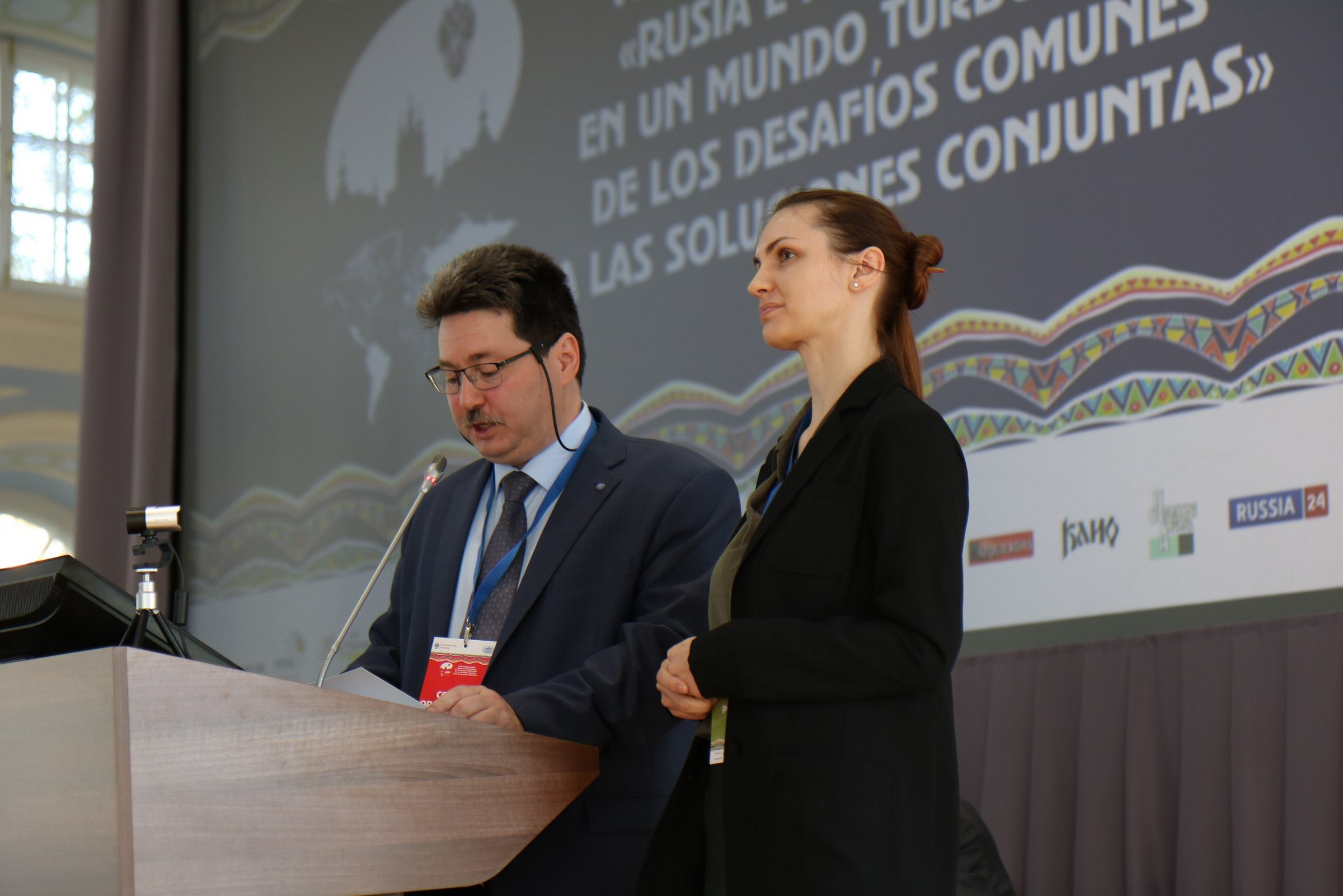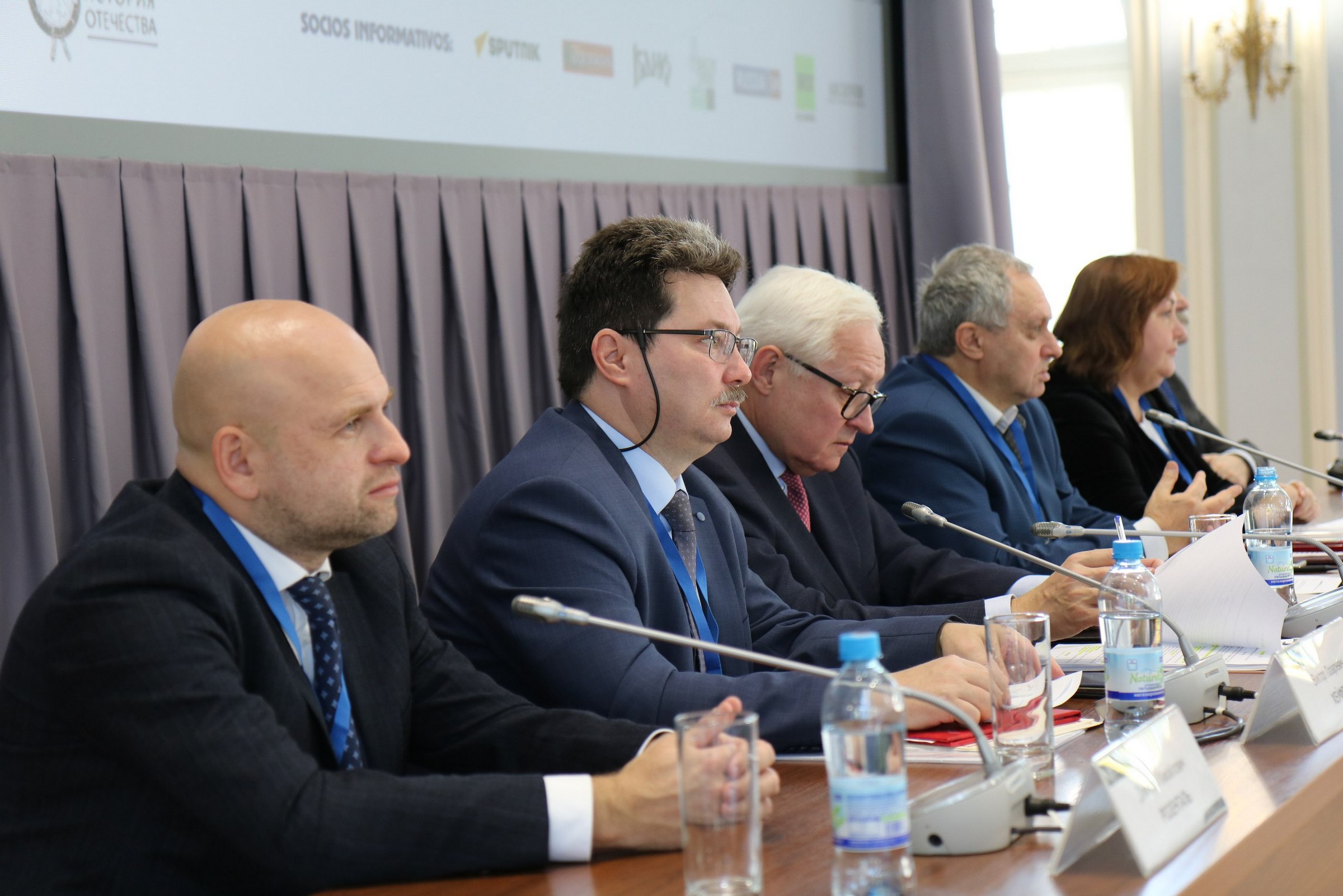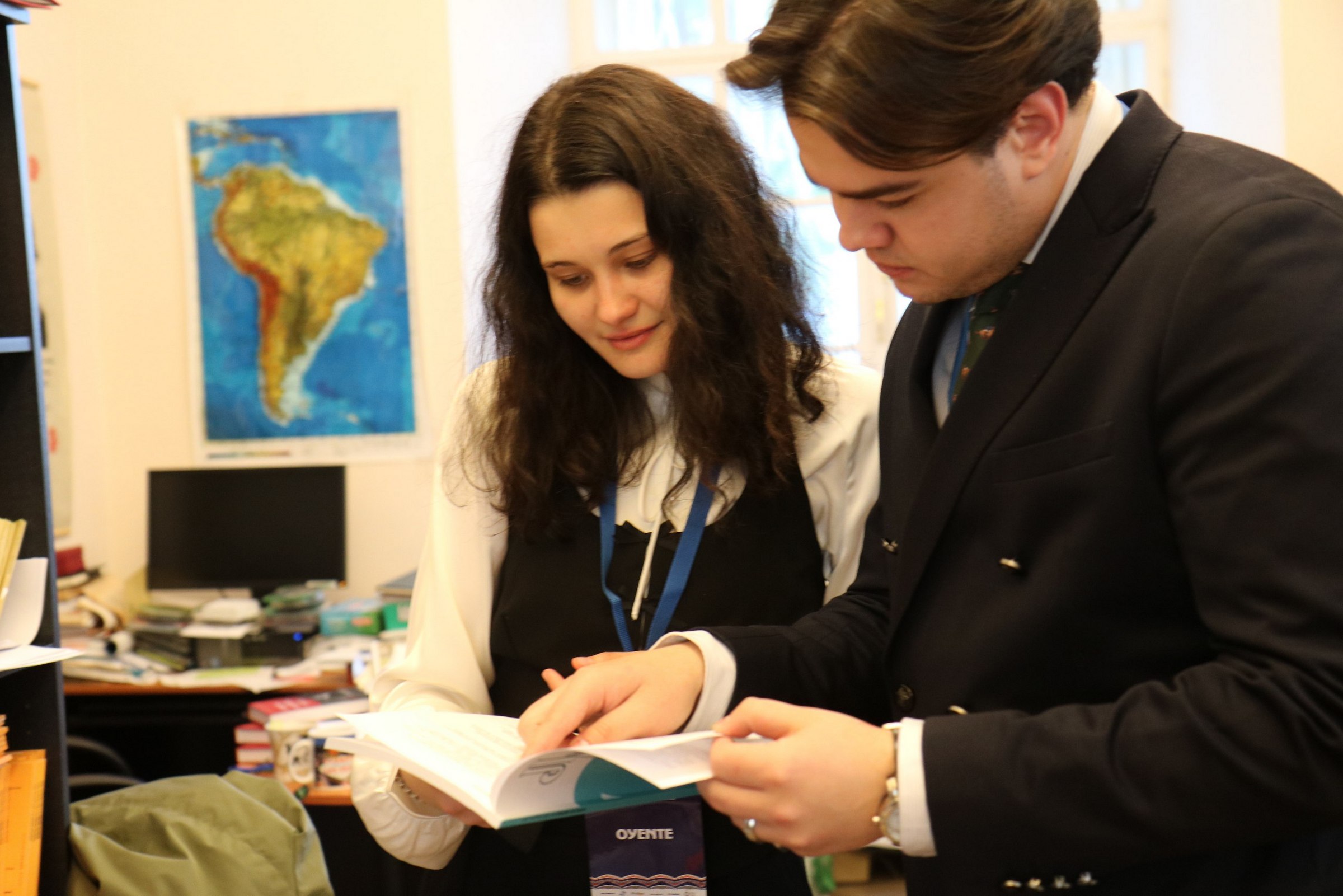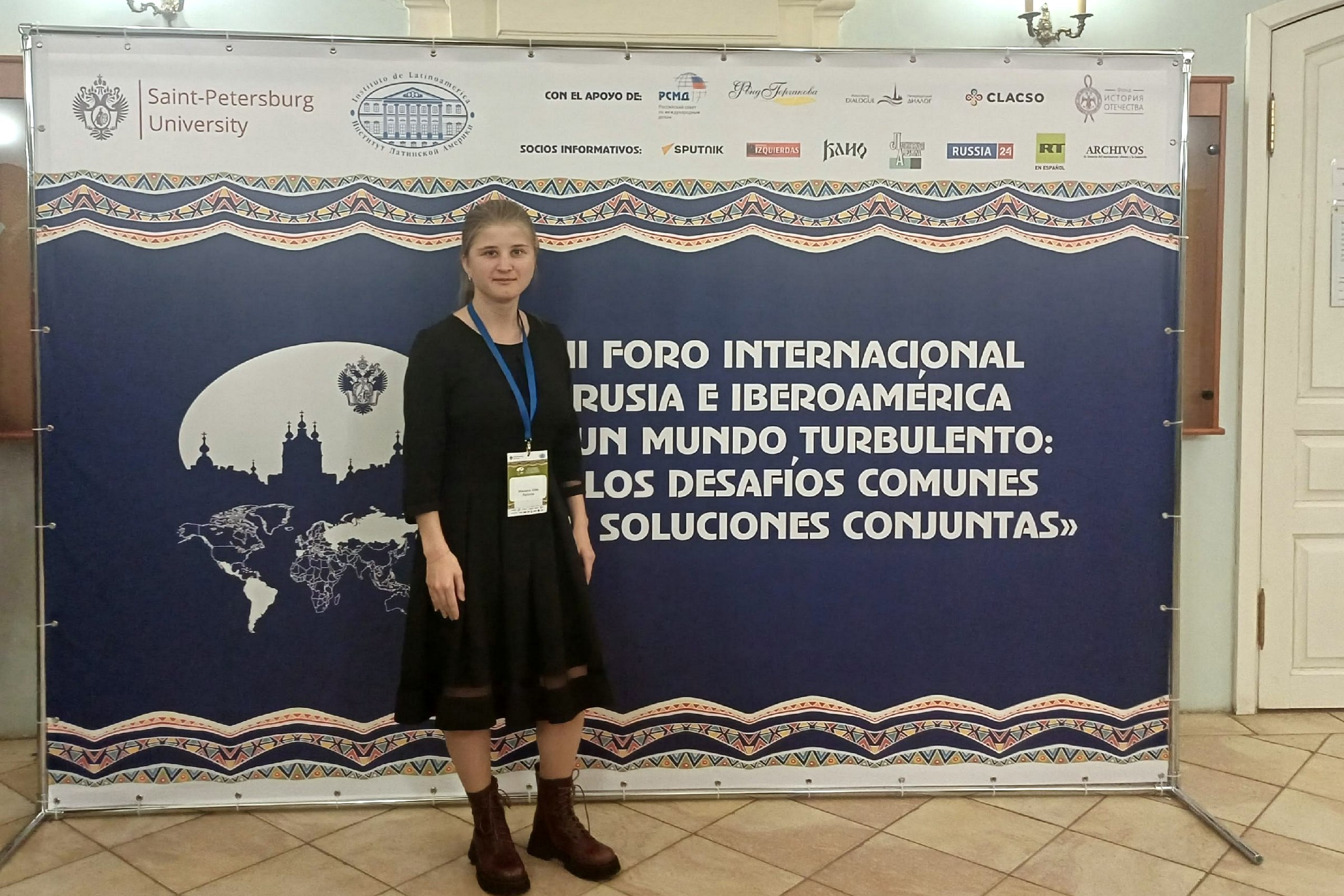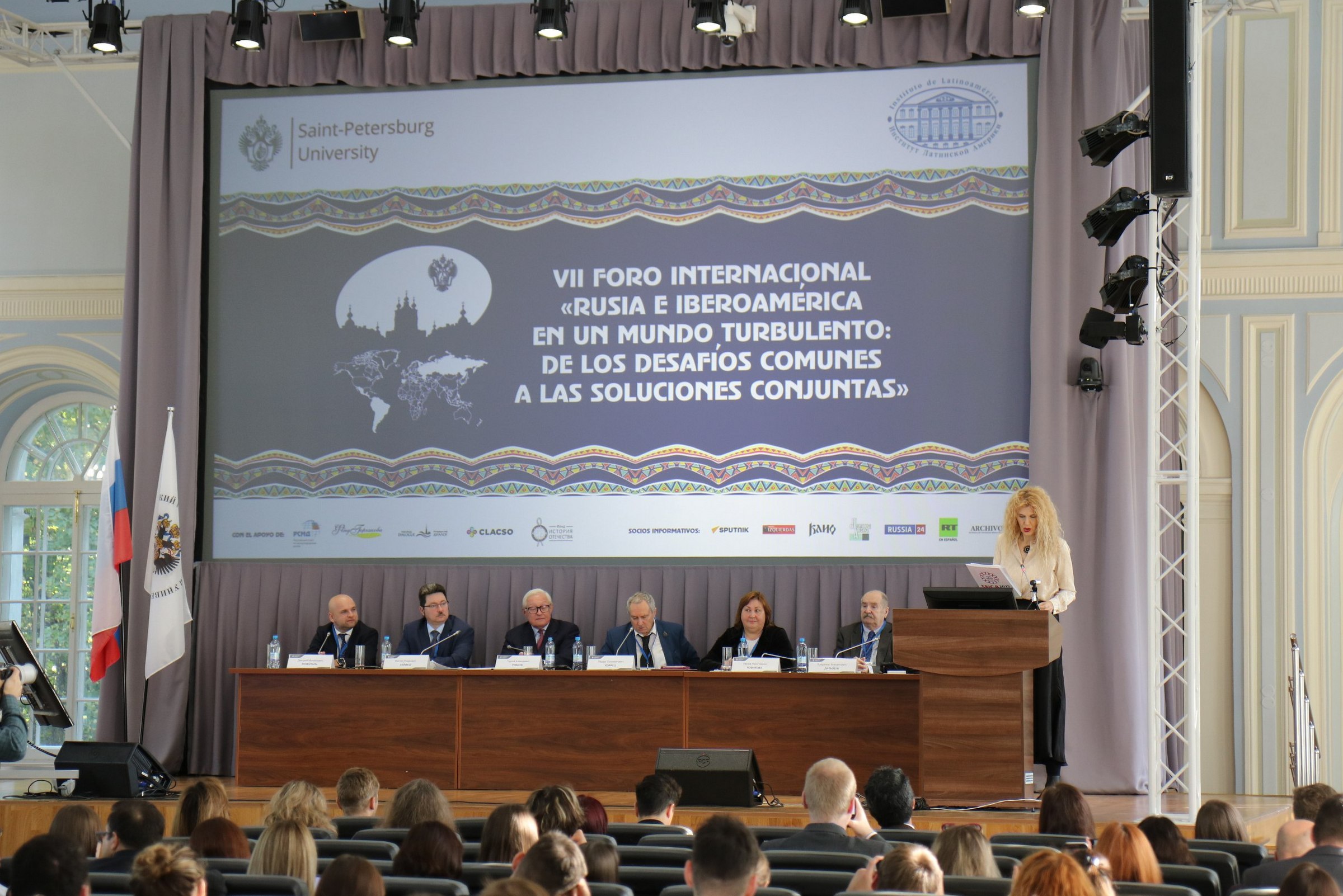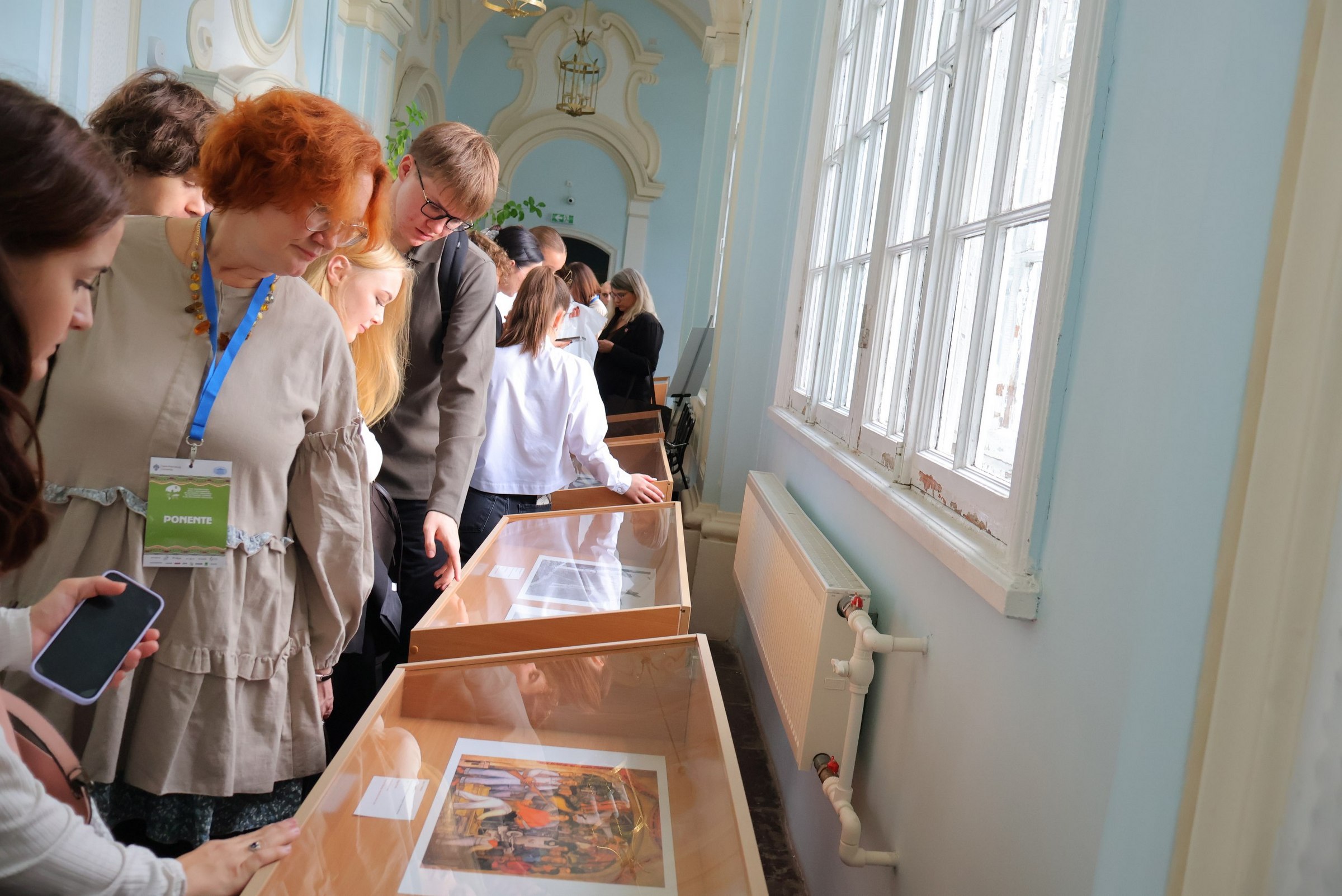On October 1, 2025, the VII International Forum "Russia and Ibero-America in a Turbulent World: From Common Challenges to Joint Solutions" commenced at St. Petersburg State University. L.V. Khadorich, Head of the "IberAClub" Ibero-American Club at the Primakov Center, took an active part in the forum.
Additionally, Alina Mironova, a student at Samara University, an activist of the Primakov Center, and Coordinator of IberAClub, delivered a presentation titled "From Marginality to a Cultural Symbol of the Country: Lunfardo as a Linguistic Expression of Identity in Argentine Tango" within the section "Russia and Ibero-America: History and Culture." She also participated in the School for Young Ibero-Americanists.
Ahead of the Forum, an off-site meeting of the Association of Ibero-American World Researchers was held, where the results of the past year were reviewed and future plans were outlined.
The official opening ceremony of the Forum featured addresses from leadership of St. Petersburg State University, the Russian Ministry of Foreign Affairs (MID RF), the CIS Inter-parliamentary Assembly, the Government of St. Petersburg, the Institute of Latin America of the Russian Academy of Sciences (RAS), the RAS Department of Global Issues and International Relations, the Council for Foreign and Defense Policy, the A.M. Gorchakov Public Diplomacy Fund, the International Congress of Americanists, the Cuban Institute of Friendship with the Peoples, the Public Chamber of the Russian Federation, the Russian International Affairs Council, the Latin American Council of Social Sciences (CLACSO), and the "Adelante" Center for Spanish Language and Culture.
The Forum proceeded with a packed and productive schedule. The main program involved scholars, specialists, and students actively discussing the most critical aspects of interaction between Russia and Latin American countries.
The plenary sessions featured significant presentations, such as a report by Dmitry M. Rozental (ILA RAS) on the principles and objectives of Donald Trump's Latin American policy, and a speech by Viktor L. Kheifets (SPbSU) on "Latin America, the USSR, and the Second World War: Pages of Shared History."
Separate round tables were held, addressing pressing issues of politics and public life. For instance, a round table titled "Electoral Processes: The Experience of CIS and Latin American Countries" took place, along with a discussion platform on "The Influence of Digital Platforms on Socio-Political Discourse in Latin America."
Among the educational initiatives, the School for Young Researchers "Russia and Ibero-America: Dialogue in a Turbulent World" stood out, aimed at preparing the next generation of experts in the field of Latin American studies.
Master classes provided an additional creative stimulus. Notably, a master class by Mikhail N. Malkov (MID RF) for Master's students of the "BRICS Studies" program allowed students to delve deeper into the study of Russia-Latin America interaction.
The event program also included exhibitions highlighting the significance of shared cultural and historical memory, particularly the exposition "The USSR, International Solidarity, and the Fight Against Reaction Tina Modotti." These events enabled participants to better understand cultural parallels and the deep roots of our countries' interaction.
Cultural events formed a significant part of the forum, emphasizing the richness of traditions and close ties between Russia and Latin America. Notable highlights included two exhibitions: the paintings of the Cuban master Omar Godinez titled "Confluencia," and the creative series of works by Russian artist Nina D'yakova "Rainbow Over the Ocean. Russia-Latin America," which demonstrate a unique interweaving of cultures.
Literary readings and lectures, presenting works by renowned authors and researchers exploring a broad range of topics related to Latin America and Russia, contributed to the intellectual enrichment of the audience. This allowed for a broader understanding of the cultural, historical, and political nuances of both sides.
The forum served as a significant event, uniting scholars, experts, government officials, and youth for constructive dialogue and a joint search for pathways to further develop partnership in various fields.
Text by Guzaliya Shakurova, Staff Member of the E.M. Primakov Center.
Photo by Center for Ibero-American Studies, SPbSU
